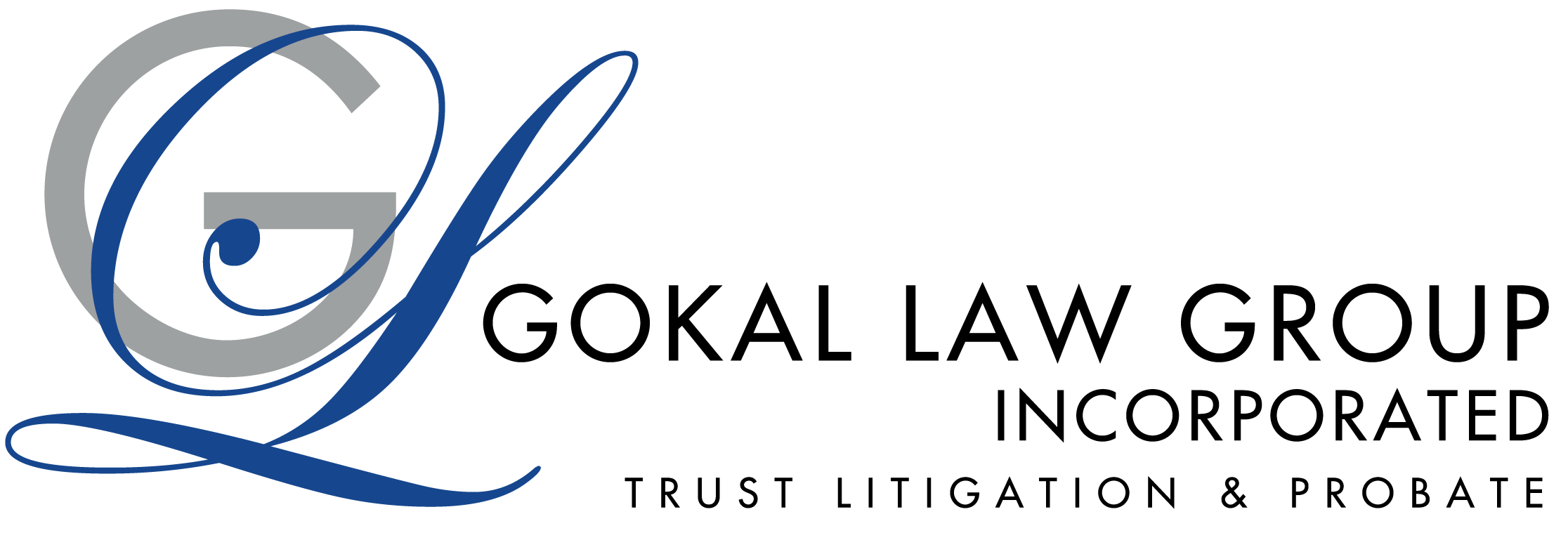Imagine when a loved one passes away you come to find out that they left behind estate documents that clash with one another. Wills and trusts are essential components of estate planning that should provide an easy transition from one generation to another. Instead, when estate planning documents conflict, the result may be a dispute among beneficiaries. Many clients come to our firm in these situations and ask, How does a will work with a trust when they clash? There is no easy answer in these situations, and we assess the unique set of facts. Where the trust properly holds trust assets, the terms of the trust are likely to dictate how the assets will be distributed. However, this is not always the case and there may be certain facts that could alter this.
At Gokal Law Group, we have helped countless beneficiaries claim their rightful inheritance and navigate the complexities of probate and trust law. Here is what to know if you are dealing with a conflicting will and trust.
How Does a Will Work with a Trust When They Conflict?
To understand how to navigate these contentious and legally complex situations, it’s crucial to understand that a will generally cannot supersede how an existing trust distributes its assets. However, it may be argued that a later dated will serves as an amendment or revocation of prior trust. This is why it is necessary to carefully read the trust and the will, and to understand all of the factual circumstances surrounding the creation of the testamentary documents. It will be up to the probate court to determine what was the intent of the decedent.
Under most circumstances, a will only directs the disposition of the assets within the decedent’s probate estate. In other words, only those assets held in the decedent’s name as opposed to assets held in the name of the trust are controlled by the will. If a will’s instructions conflict with trust terms and there is no other reason to believe that the will serves as an amendment or revocation to the trust, the will’s terms will apply to the assets in the estate, and the trust’s instructions will apply to the assets in the trust.
Most often, when a decedent creates an estate plan using a knowledgeable trust attorney, that attorney will usually establish a trust and a “pour-over will”. The pour-over will is used to direct all assets titled in the decedent’s name to the trust through the probate process.
When Can a Will Supersede a Trust?
Under certain circumstances, a will could impact the trust.
It could be argued that the decedent created a will to reflect his or her true wishes with respect to the property. In such circumstances, a party may argue that the trust was a product of undue influence and should be invalidated. This argument requires a complicated and fact-specific analysis of the circumstances surrounding the creation of the will and trust.
Lack of capacity is often argued to invalidate a trust instrument. In this case, a party may argue that the decedent didn’t have the requisite mental abilities to create a complex trust and that a prior will should dictate the decedent’s wishes. A diagnosis of dementia or Alzheimer’s is not enough by itself for a finding of lack of capacity. This requires a complex review of the person’s medical records and expert witness analysis.
Whether assets were properly titled into a trust will be important in determining whether a the will has any impact on the distribution of estate assets. Where there is no pour-over will and the will direct the distribution of estate assets, the will will likely prevail over the trust’s terms.
It’s important to understand that as a beneficiary or heir, you have rights in these situations, and you can enforce them to defend your inheritance and the legacy that the decedent wanted to leave behind.
“When a trust and will are at odds, it can create serious conflict within a family. An experienced attorney will help interpret complex estate estate planning documents, understand the relevant facts and apply the probate code to advise on the best course of action.”
– Ron V. Larson, Partner, Gokal Law Group
Related Article: Does a Will Override a Trust in California?
Are You Dealing with a Conflicting Trust and Will? Contact Us Today to Enforce Your Rights and Protect Your Inheritance.
So, how does a will work with a trust when they conflict? Unfortunately, there is no easy answer. Understanding the complex relationship between wills, trusts, and the laws that govern them is essential to protecting your inheritance. If you are dealing with a conflicting trust and will that are threatening the inheritance you rightfully deserve, it is essential to consult with an attorney to enforce the terms of the valid document.
Contact us to schedule a consultation and safeguard your inheritance.
Disclaimer:
The information provided on this website does not, and is not intended to, constitute legal advice. Use of, and access to, this website or any of the links or resources contained within the site do not create an attorney-client relationship between the reader, user, or browser and Gokal Law Group, Inc. All information, content, and materials available on this site are for general informational purposes only. Information on this website may not constitute the most up-to-date legal or other information.
Readers of this website should contact an attorney to obtain advice with respect to any particular legal matter. No reader, user, or browser of this site should act or refrain from acting on the basis of information on this site without first seeking legal advice from counsel in the relevant jurisdiction. Only your individual attorney can provide assurances that the information contained herein – and your interpretation of it – is applicable or appropriate to your particular situation.
